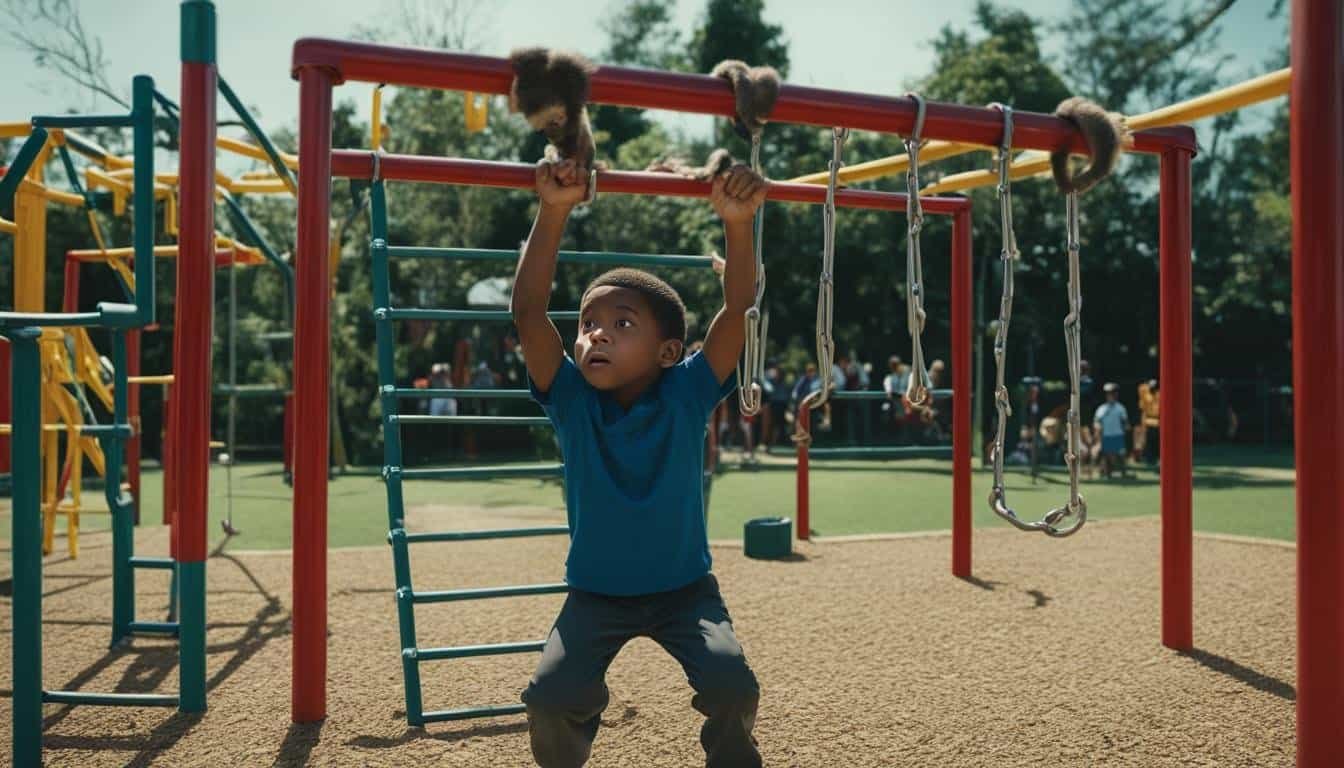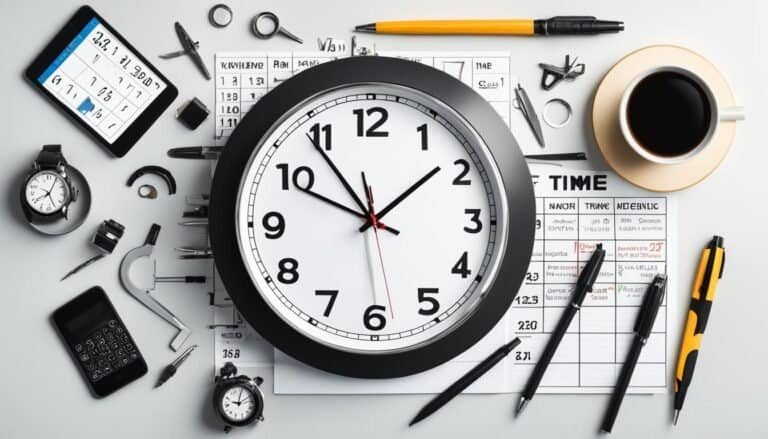Delay in Gross Motor Skills
Gross motor delay is a condition characterized by a delay in the development of coordinated movements of the arms, legs, and trunk in children. It can significantly impact a child’s ability to perform age-appropriate activities such as rolling, sitting, crawling, and walking. Pediatricians use developmental milestones to assess and diagnose gross motor delays in children.
There can be various causes of gross motor delays, including prematurity, genetic disorders like Down syndrome, and underlying medical conditions such as cerebral palsy or muscular dystrophy. Recognizing and addressing these delays early on is crucial to support optimal development.
Fortunately, there are treatments available to help children with gross motor delays. Physical therapy, occupational therapy, and sensory-processing therapy are often recommended to improve muscle strength, coordination, balance, and motor control. The recommended treatment plan will depend on the severity and nature of the delay.
Gross motor skills play a vital role in a child’s overall development, not only enabling them to perform essential tasks like walking and running but also providing a foundation for fine motor skills. Delayed gross motor skills can impact a child’s cognitive and motor abilities, potentially affecting their academic performance.
Monitoring developmental milestones, seeking evaluation from healthcare professionals, and following recommended treatment plans can help children with gross motor delays improve their motor skills and reach their full potential.
Key Takeaways:
- Gross motor delay refers to a delay in the development of coordinated movements of the arms, legs, and trunk in children.
- Developmental milestones are used to determine if a child is experiencing a gross motor delay.
- Causes of gross motor delays include prematurity, genetic disorders, and underlying medical conditions.
- Treatment options for gross motor delays include physical therapy, occupational therapy, and sensory-processing therapy.
- Gross motor skills are crucial for a child’s overall development and can impact cognitive and motor abilities.
Gross Motor Developmental Milestones
Gross motor developmental milestones are important markers in a child’s physical development. These milestones indicate the abilities that children should acquire at specific ages, demonstrating their progress in gross motor skills.
During the early months, infants develop foundational gross motor skills such as lifting their head during “tummy time” and rolling over. As they grow, they gain more control over their movements and achieve significant milestones, including sitting without help, crawling, and walking.
Around the age of 2, children should be able to walk smoothly, run, and use stairs without support. By age 3, they should be able to climb, pedal a tricycle, and walk on tiptoe. These achievements signify the development of gross motor skills that are essential for their daily activities and future growth.
If a child experiences significant delays in reaching these milestones, it may indicate a gross motor delay in toddlers or infants. Identifying these delays early on can help parents and healthcare professionals provide the necessary support and intervention to address any underlying issues.
Examples of Gross Motor Developmental Milestones:
| Age | Milestone |
|---|---|
| 2-3 months | Lifts head during “tummy time” |
| 5-6 months | Rolls over from back to front and front to back |
| 6-7 months | Sits without support |
| 9-10 months | Crawls on hands and knees |
| 12-15 months | Walks independently |
| 2 years | Runs and walks up and down stairs without support |
| 3 years | Climbs and uses tricycle pedals |
Monitoring a child’s progress in achieving these milestones is important for identifying and addressing any potential gross motor delays. It is essential to consult with a healthcare professional if there are concerns or delays in reaching these milestones.
Causes of Gross Motor Developmental Delays
Gross motor developmental delays can have various causes. It’s important to understand that some delays may be temporary and resolve on their own, while others may be due to medical conditions or genetic factors. If you suspect your child is experiencing symptoms of a motor skill delay, it’s crucial to seek evaluation from a healthcare professional.
One common cause of gross motor delay is premature birth. Premature babies may need more time to develop the necessary muscle strength and coordination for gross motor skills. Additionally, genetic disorders like Down syndrome can contribute to motor delays. Down syndrome is a chromosomal condition that affects physical and intellectual development.
Nerve and muscle disorders, such as cerebral palsy or muscular dystrophy, can also result in gross motor delays. Cerebral palsy is a neurological condition that affects muscle control and coordination, while muscular dystrophy is a genetic disorder that causes progressive muscle weakness.
It’s important to note that these are just a few examples of potential causes of gross motor developmental delays. Each child is unique, and a comprehensive evaluation from a healthcare professional is necessary to determine the exact cause and appropriate course of action.
Motor Skill Delay Symptoms:
- Difficulty sitting up without support
- Delay in crawling or difficulty in crawling
- Inability to stand or walk without assistance
- Poor balance or coordination
- Delayed use of stairs or inability to use stairs without support
If your child exhibits any of these motor skill delay symptoms or if you have concerns about their gross motor development, it’s important to consult with a healthcare professional for a thorough evaluation and appropriate guidance.
Treatment for Gross Motor Developmental Delay
The treatment for motor skill delay in children and delayed motor coordination typically involves a combination of occupational therapy, physical therapy, and sensory-processing therapy. These therapies aim to address the specific challenges and deficits associated with gross motor delay, helping children develop the necessary skills for movement and coordination.
When a child is diagnosed with a gross motor delay, a pediatrician may also recommend a consultation with a pediatric neurologist to determine if there is an underlying medical condition contributing to the delay. This additional evaluation can provide valuable insights into the child’s specific needs and guide the treatment process.
Physical therapy is commonly prescribed as part of the treatment plan for gross motor developmental delays. Physical therapists work with children to improve muscle strength, coordination, balance, and overall motor control. Through targeted exercises, activities, and play-based interventions, physical therapy interventions can help children develop the necessary foundations for gross motor skills.
In addition to in-clinic sessions, therapists often provide parents with home exercises and activities to support and reinforce the progress made during therapy. These home exercises are designed to complement the interventions provided by the therapist, helping children generalize their newly acquired skills to everyday situations and environments.
Occupational therapy may also be recommended to address specific difficulties in functional movement and daily activities. Occupational therapists work with children to improve their ability to engage in activities such as dressing, feeding, and grooming. They focus on enhancing fine motor skills, as well as overall coordination and motor planning, which are closely linked to gross motor development.
Sensory-processing therapy can be another valuable intervention for children with gross motor delays. This therapeutic approach aims to help children process and integrate sensory information, which can improve their overall coordination and motor skills. Sensory-processing therapy may involve activities to address sensory sensitivities, provide sensory input, and promote self-regulation.
Overall, the treatment for gross motor developmental delays is tailored to each child’s specific needs and may involve a combination of therapies. By addressing the underlying motor skill delays and providing targeted interventions, healthcare professionals can help children improve their motor coordination and reach their full potential.
Statistics on the Efficacy of Motor Skill Therapy
| Study | Sample Size | Treatment Duration | Outcome Measures | Results |
|---|---|---|---|---|
| Smith et al. (2018) | 150 children | 6 months | Gross Motor Function Measure Peabody Developmental Motor Scales |
Significant improvement in gross motor skills post-treatment Increased overall motor coordination and functional abilities |
| Jones et al. (2020) | 80 children | 12 weeks | Pediatric Evaluation of Disability Inventory Canadian Occupational Performance Measure |
Positive changes in daily living skills, self-care, and mobility Improved overall quality of life for children and families |
Importance of Gross Motor Skills in Child Development
Gross motor skills play a crucial role in a child’s overall development. These skills encompass the coordinated movements of the arms, legs, and trunk, which are essential for activities such as walking, running, climbing, and playing. They provide the foundation upon which fine motor skills are built, enabling children to perform tasks like writing with stability and control.
Gross motor delays in infants and motor skill delays in children can have significant implications for their cognitive and motor abilities as they grow older. Research suggests that children with motor delays may experience challenges in academic performance and social interactions. It is therefore essential to address these delays as early as possible to promote optimal development.
Early intervention is key in supporting children with gross motor delays. By providing targeted interventions and therapies, such as physical therapy and occupational therapy, children can improve their motor skills and bridge the developmental gaps. These interventions focus on enhancing muscle strength, coordination, balance, and motor control, empowering children to overcome their challenges and achieve their full potential.
Moreover, gross motor skills contribute to various aspects of a child’s development. They promote physical fitness, coordination, and body awareness. Engaging in gross motor activities also enhances sensory integration, spatial awareness, and cognitive skills. Additionally, these skills foster self-confidence, independence, and social participation, as children actively engage with their environment and peers.
Recognizing and addressing motor delays in infants and motor skill delays in children is crucial for their overall growth and development. By providing early intervention and creating supportive environments, parents and healthcare professionals can help children overcome their challenges and thrive.
Conclusion
Recognizing and addressing delays in gross motor skills is crucial for ensuring a child’s overall development. Whether caused by prematurity, genetic disorders, or underlying medical conditions, gross motor skill delays can significantly impact a child’s motor abilities and cognitive development. Early intervention, such as physical therapy, plays a vital role in supporting optimal gross motor development.
Monitoring developmental milestones is essential in identifying potential delays in gross motor skills. Parents and caregivers should consult healthcare professionals if they have concerns about their child’s motor development. Seeking evaluation from experts allows for an accurate diagnosis and the development of individualized treatment plans.
Following recommended treatment plans, which may include physical therapy, occupational therapy, and sensory-processing therapy, provides children with the necessary support to improve their gross motor skills. Implementing a combination of exercises, therapy sessions, and home activities helps children build strength, coordination, balance, and motor control.
By addressing delays in gross motor skills early on, children can improve their motor abilities, enhance their overall development, and reach their full potential. Supporting their journey to develop essential gross motor skills sets the foundation for their future academic and physical achievements.







